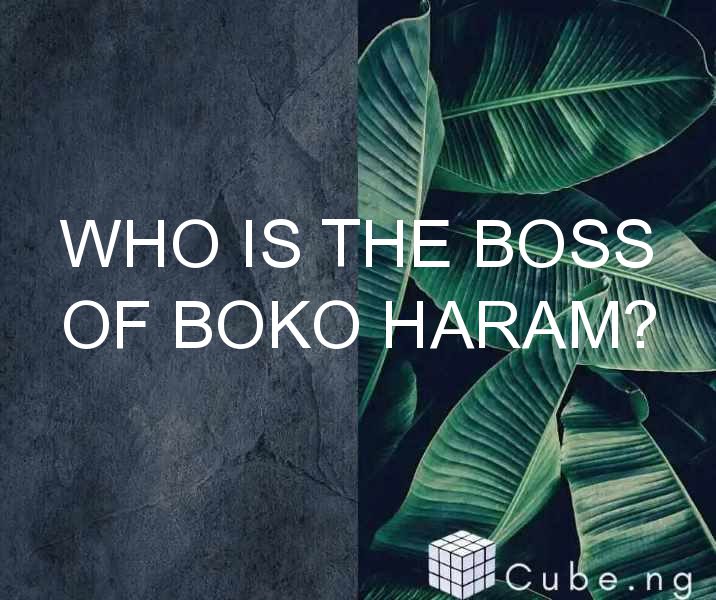Boko Haram is a notorious terrorist group that has been causing chaos and destruction in Nigeria since its inception in 2002. The group has been responsible for numerous bombings, kidnappings, and killings, which have left thousands of people dead and others displaced. Despite the efforts of the Nigerian government and other international organizations to eradicate the group, Boko Haram remains a formidable force. In this article, we will be discussing the identity of the boss of Boko Haram and how the group operates.
Table of Contents
What is Boko Haram?
Boko Haram, which means “Western education is forbidden” in the Hausa language, is an Islamist extremist group that was founded by Mohammed Yusuf in 2002. The group's main objective is to establish an Islamic state in Nigeria and to impose its strict interpretation of Sharia law. Boko Haram's violent campaign began in 2009, after the Nigerian government launched an offensive against the group, which led to the death of its leader, Mohammed Yusuf. Since then, the group has been led by Abubakar Shekau, who has been a thorn in the flesh of the Nigerian government.
Who is Abubakar Shekau?
Abubakar Shekau is the current leader of Boko Haram. He was born in the village of Shekau, in Yobe State, Nigeria, in 1969. Shekau joined Boko Haram in 2003, shortly after the group's formation, and rose through the ranks to become the leader after the death of Mohammed Yusuf in 2009. Shekau is a ruthless leader who has been responsible for the deaths of thousands of people, including women and children. He has also been responsible for the abduction of hundreds of girls from the town of Chibok in 2014, which drew global attention to the group.
How does Boko Haram operate?
Boko Haram operates in a decentralized manner, with cells spread across Nigeria and the neighboring countries of Chad, Niger, and Cameroon. The group's fighters are well trained and well armed, and they use guerilla tactics to launch attacks on military and civilian targets. Boko Haram's attacks are often brutal and indiscriminate, with suicide bombings and mass shootings being their preferred methods of attack. The group also uses kidnappings as a means of generating income, with hostages often being exchanged for ransom or used as bargaining chips in negotiations.
Why has Boko Haram been difficult to eradicate?
Boko Haram has proven to be a difficult group to eradicate, despite the efforts of the Nigerian government and other international organizations. This is due to a number of factors, including the group's decentralized structure, its use of guerilla tactics, and its ability to blend in with the local population. Boko Haram also has a strong network of sympathizers and supporters, who provide the group with food, shelter, and information. Additionally, the group has been able to exploit the poverty and disenfranchisement of the local population, which has made it easier for them to recruit new members.
What can be done to stop Boko Haram?
Stopping Boko Haram will require a multifaceted approach that addresses the root causes of the group's existence. This includes addressing poverty and joblessness, improving education and healthcare, and promoting good governance. The Nigerian government must also work to improve its intelligence gathering and military capabilities, while also working with neighboring countries to address the cross-border nature of the group's operations. International organizations must also play a role in providing assistance and support to affected communities, while also working to disrupt the group's funding networks.
Conclusion
Boko Haram continues to pose a significant threat to the stability and security of Nigeria and the wider region. The group's leader, Abubakar Shekau, remains at large, and the group continues to launch attacks on military and civilian targets. Stopping Boko Haram will require a concerted effort from the Nigerian government, international organizations, and the local population. Addressing the root causes of the group's existence, improving intelligence gathering and military capabilities, and disrupting the group's funding networks are all key steps in the fight against Boko Haram. It is only by working together that we can hope to put an end to the group's reign of terror.




